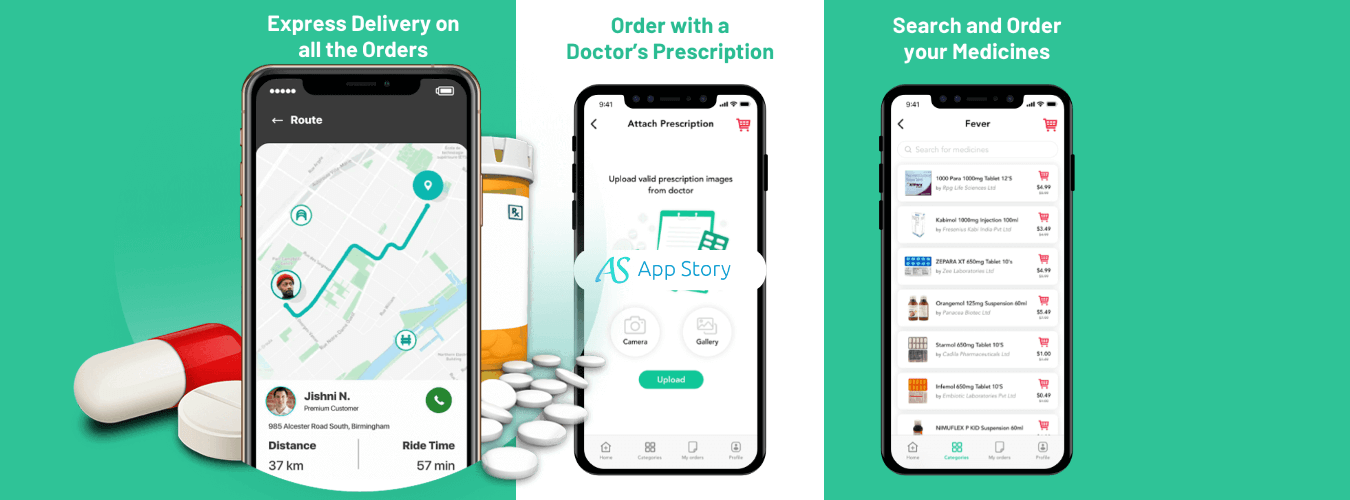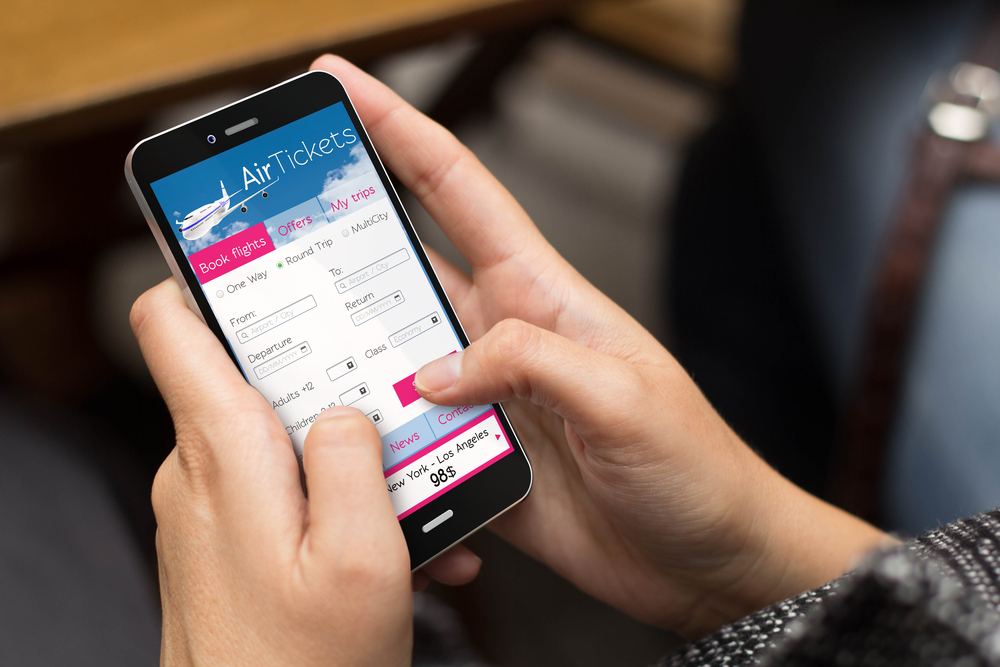What Is The Price Of Developing An App For Medicine Delivery? The phrase “on-demand” for a business strategy was first used to describe how to transform the way we currently conduct business and live our lives. On-demand web application development has shown never-before potential for organizations. It has become a well-liked trend in the industry, from cabs to meals and groceries to the salon. Therefore, if you are a business owner who wants to focus heavily on the market, you must abandon your traditional approaches and adopt an exciting digital strategy.
The on-demand supply of medications is one such area that still has excellent success rates.
Everyone’s health should come first, yet most of us need more time to wait outside a pharmacy to buy medications. The emerging trend in the healthcare industry is on-demand pharmaceutical delivery applications; thus, creating one is advantageous for both you and your users.
What is a Medicine Delivery App?
A “medicine delivery” or “pharmacy delivery app” software program enables users to obtain prescription medications online and deliver them by the closest warehouse.
The user must search for the medication, upload the prescription, make a reservation, and receive reasonably priced medications delivered to any location they like. The medication delivery app is useful for people who don’t live at home but have a family member who needs regular medication because it enables them to order the medication from wherever they are and have it delivered to the desired location.
Growth Stats of Medicine Delivery App
But how can we be certain that our medication delivery app will be successful and profitable for your company? We’ll leave the statistics from recent surveys to provide you with the answer.
- According to PR Newswire, the pharmaceutical medication delivery industry is anticipated to grow at a CAGR of 18.66% from 2021 to 2026, reaching $4.69 billion.
- According to a Globe Newswire report, the market for medication delivery systems might reach $45.20 billion by 2027 at a CAGR of 6.8%.
- According to Industry Data Forecast, the online pharmacy industry will grow by 16.81% between 2022 and 2027 to reach $107.5 billion.
- According to Statista research, the online pharmacy market’s revenue is anticipated to grow at a CAGR of 11.45% and reach $34.71 billion by 2026.
Benefits of On-Demand Medicine Delivery App Development
You could be persuaded by the statistics we have shown above that an on-demand pharmaceutical app can benefit your company. Before learning how to design one, you should know the benefits a pharmaceutical delivery app can provide.
- Apps that distribute medications help pharmacies and drug distribution centers reach more clients and enhance revenue by removing geographic constraints.
- Additionally, it aids pharmacists in maintaining inventory control.
- Online pharmacy apps allow consumers to easily order medications from any location, saving them time and effort.
- Users can take advantage of the cashback that the platform owner is offering, which results in comparative discounts from offline pharmacies.
- Checking if the necessary meds are available or not is made simpler for users. To receive notifications when the medications become available, they can also add them to their wishlist.
- The online pharmacy delivery applications also include a facility to confer with a doctor, which aids patients in locating suitable alternatives to their already prescribed medication if it is out of stock.
- As the web app’s administrator, you can make money from the pharmacies by providing a platform for them to reach out to more people.
- Running adverts for pharmacies, diagnostic facilities, and other medical goods is another approach to monetize the platform’s development for the distribution of medications.
- To draw in more customers and strengthen your brand identification, you can also design and manage campaigns as a platform owner that provides various discounts and deals.
Must-Have Features for Medicine Delivery App
It’s time to learn what features are essential for an on-demand pharmaceutical delivery app now that you know the advantages of having one.
For Customers
- Social Login & Signup
The registration procedure should be simple using the user’s preferred login information (email address and phone number) or social network accounts like Facebook, Twitter, or Gmail. The same credentials should work to log in.
- Profile Control
Prescriptions, payment information, order history, address, and other details should all be manageable by users and editable on the profile.
- Put prescriptions online
To effectively upload the prescription photograph from there, users must be able to connect the phone gallery to the account.
- Category search filters
Users should be able to filter the categories of medications based on their needs, and the categories should be organized according to ailments.
- Medical Information
The product’s page should include all relevant information, such as the name of the maker, manufacturing information, brand, salt content, price, and expiration date.
- Wide-ranging Search
If the recommended medication is unavailable, users should be able to discover an alternative.
Pharmacy Store Panel
- Manage drug information
It should be simpler for pharmacists to independently add or remove medications from the list they have provided on the web application.
- Order Monitoring & Alerts
A prompt notification must be given to the pharmacy each time a user places an order to expedite processing.
- electronic prescriptions
The pharmacist should have access to the patient’s uploaded digital prescription to give accurate drugs.
- Control discounts
To increase customer loyalty, pharmacies should be able to develop deals for their clients.
- Order Control
Pharmacists should be able to coordinate, complete orders, handle consumer returns, and issue refunds for such returns.
- Follow Payments
The app should automatically receive all payments, and the pharmacist should easily trace them all.
- Review & Rating Access
Users’ testimonials and reviews aid pharmacists in better comprehending their customers’ needs and expectations.
- List comparable drugs
If a specific brand of medication isn’t accessible, a pharmacist should be able to provide equivalent or substitute medications.
For Medicine Delivery Agent
- Messenger Profile
The delivery agent needs access to the customer’s address and contact information to deliver the medication without a hitch. As a result, in addition to the delivery history, the users should be given access to the delivery agent’s information.
- In-App Messages
Once the pharmacist has processed the order on their web app, delivery agents should receive a notification for picking up the product.
- tracking mechanism
For delivery personnel to be able to deliver orders to the correct location, there must be a GPS tracking system.
- updates on delivery
The delivery agent should have the option to update the delivery status once the drug has been delivered successfully so they can keep track of the specifics.
Online Pharmacy App – Admin Features
- Inventory Control
Thanks to this function, the admin can keep track of all of their products and inventories. They should also be notified of the product’s expiration date.
- Tools for Marketing & Promotion
Additionally, a campaign manager should be able to reach out to more customers, pharmacies, and pharmaceutical firms.
- Control users and providers
From their profile on the pharmaceutical delivery application, the administrator should be able to control the manufacturers, suppliers, and clients.
- Track ROI and revenue
The admin should have year-round access to the profits statistics so they may make more educated choices.
- Access and Produce Reports
They should be given access to information about the app’s workflow so they may create a current report.
Advanced features of the medicine delivery web app
- Online Consultation with an Expert or Doctor for an Electronic Health Record
- Document scanning functionality
- Managing Documents Easily
- Notifications through Push
- Medicine and nearby lab aggregation Reminders for refills and intake In-app chat and a phone number to reach a pharmacist Masking
- monitoring shipments
- Various Payment Methods
- Order Management Support in Multiple Languages
- Loyalty Program Navigation & Maps in-app
- Chatbot assistance
- Analytics in real time
- dashboards based on roles
Technology Stack Used To Build Medicine Delivery App
To select a tech stack, you must know the features you intend to include in your app to distribute medications. But to offer you a general idea, we’ve outlined the main tech stack that might be applied to creating a pharmaceutical delivery app.
- Java, Angular, CSS, HTML, and React are used in front-end development.
- Web-based applications
- Back-end development using Python, Node.js, and Laravel
- Batch for in-app messaging, SMS bulk sender, and push notifications
- Methods for processing payments: Stripe API, PayPal API, and Braintree SDK
- Databases: MongoDB Cloud and MySQL Environment: AWS and Google Cloud
- Tracking locations: Google Maps SDK
- Google, Facebook, and Twitter APIs for social login
How To Make an On-Demand Medicine Delivery App
The procedures below must be followed to create an application for on-demand medication delivery:
- Form your concept
- Set a budget.
- Hire our team of outside developers for medicine delivery apps.
- Do research to verify your ideas
- Make a variety of prototypes
- Give programmers the freedom to code and create the app.
- Launch digital marketing initiatives.
- Once the MVP (minimal viable product) is completed, you can evaluate and update it.
Cost of On-Demand Medicine Delivery App Development
One should expect to spend between $25,000 to $60,000, assuming developers will use free and open-source APIs and only factor in developers’ labor hours and some inescapable costs (such as servers).
- ComplexityBasic apps might start around $20,000, while more advanced ones can exceed $100,000.
- FeaturesDesigning costs can be $10,000 to $20,000, and outsourcing software costs can be $25,000 to $30,000.
- TechnologyA hybrid app that works seamlessly across all platforms (android, iOS, and Windows) can cost around $25,000 to $30,000.
- DesignThe time taken to develop the medicine delivery app can significantly affect the cost of development.
Other factors include:
- Free and open-source development
- On average, it can cost you around $15,000 to $30,000 to develop your own medicine delivery app
Geographic Location of Development Team:
Producing an MVP could take between four months and a year, depending on the quantity and complexity of features you include.
Conclusion
These days, on-demand apps are the new rage. Every business makes an app, from online meal ordering to clothing and grocery shopping to purchasing prescription drugs. These sectors and companies need to accelerate to keep up with demand as consumers become more digital and desire to purchase everything from the convenience of their homes. The medical sector is one of the largest industries that will continue to prosper. The apps that supply medications have quickly gained popularity and established themselves in app stores. Therefore, get in touch with our skilled and knowledgeable team of mobile app developers if you intend to establish such an app for your pharmaceutical business.
Bio: I have been covering the technical news based on demand app development, like medicine apps, food delivery apps, only fans clone app development, and many more, for the last 6 years. I’m trying to keep my readers ahead of the real-time and keen to know about the upcoming technologies on the global stage.





 United States
United States United Kingdom
United Kingdom India
India Canada
Canada Singapore
Singapore



































